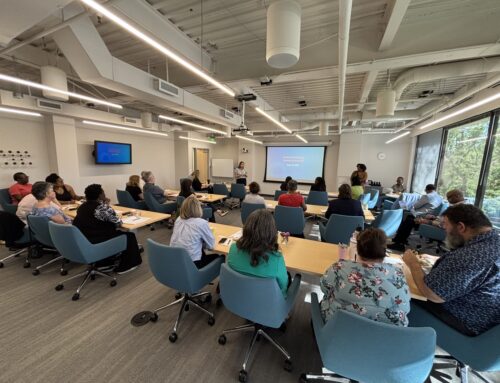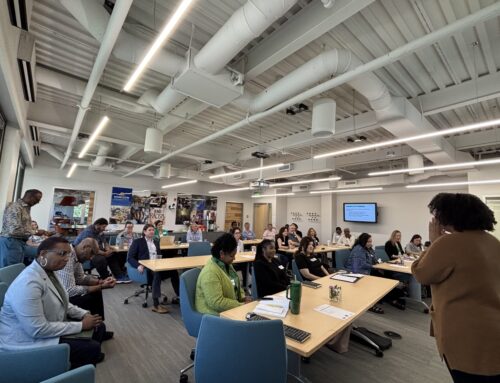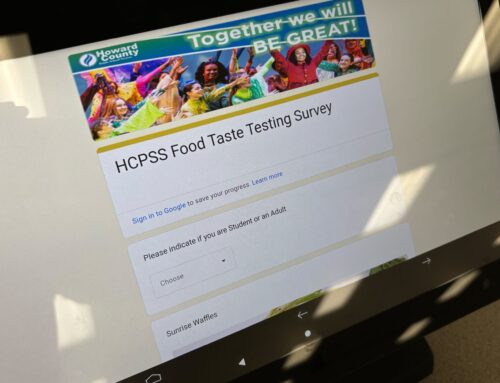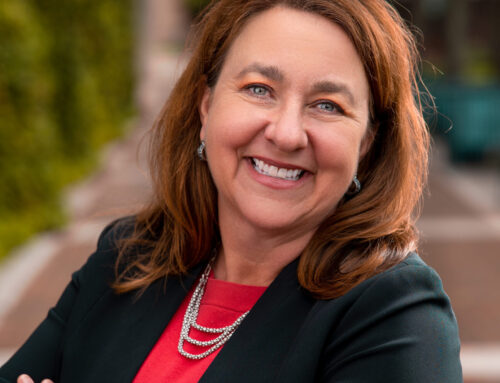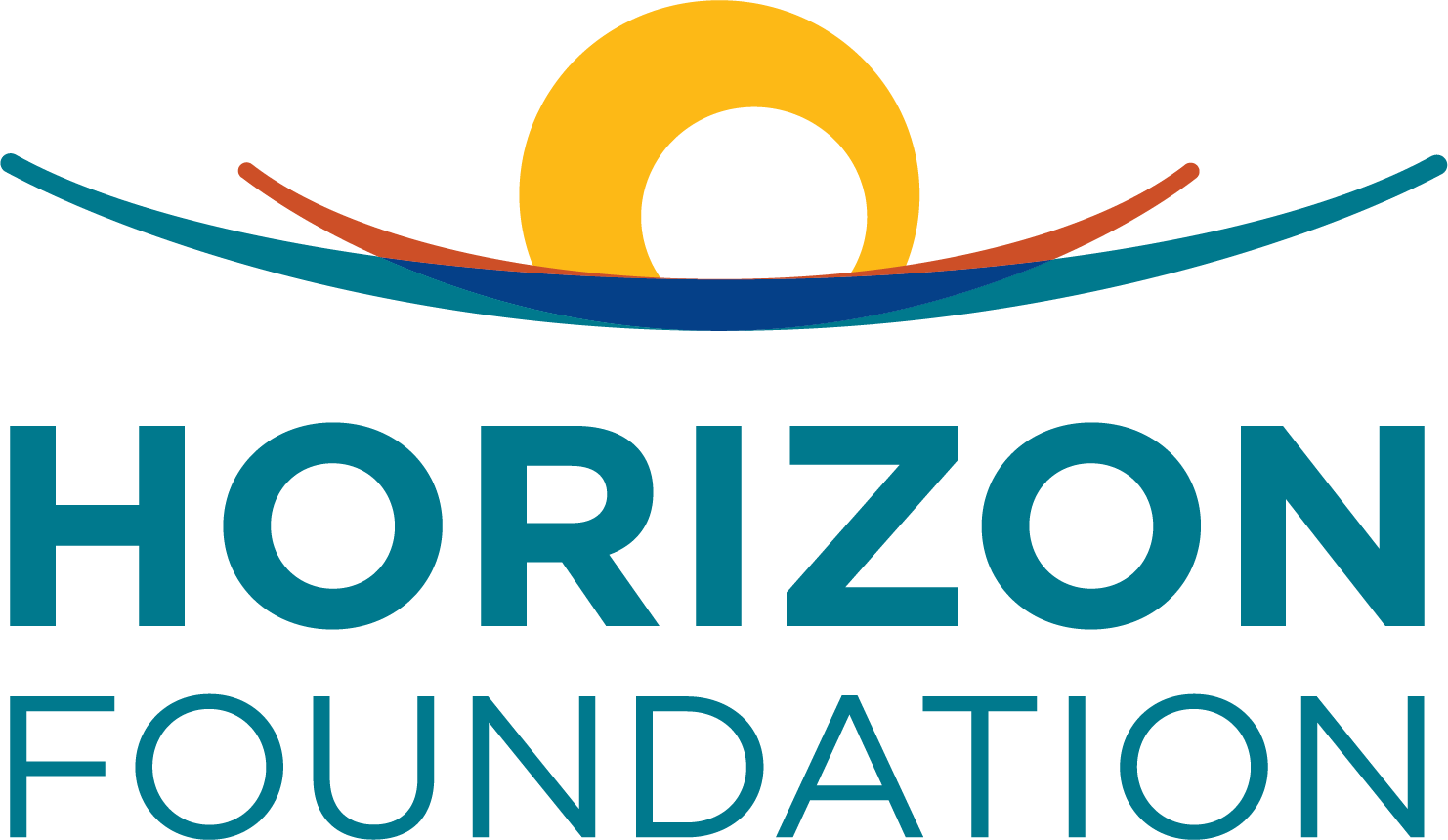Earlier this month, former board chair Greg Olanrian and I had the wonderful opportunity to lead a session at the annual Grantmakers in Health (GIH) conference along with executives from the Connecticut Health Foundation about leadership during times of distress. Leading an organization has always been a huge responsibility; then 2020 happened.
From the immense suffering caused by the COVID-19 pandemic and a nationwide reckoning with systemic racism, the past year taught us that we must reimagine how laws and policies should look in the future to ensure that all people can be healthy. We had to figure out how to better engage in collaborative leadership, organizational self-reflection and deepened, authentic relationships with racial justice grantees. We had to reflect on the use of our voices as leaders, engage in conversations with board members to upend traditional philanthropy approaches and offer compassionate support to staff. More than ever, we must all double down on our work with a sense of urgency to respond to the needs of our communities and end the systemic issues that are keeping people from achieving good health and well-being.
Keep reading for more details about this discussion.
—
Though the COVID-19 crisis has not yet fully passed, we are moving closer toward a post-pandemic world. What lessons should we keep in mind as we navigate this new normal? How should philanthropy approach this?
When the pandemic first started, and we began to comprehend the tragedy we were all experiencing, many organizations responded with a strong sense of urgency to support frontline workers, assist families hurting economically and help our communities adapt to masks and physical distancing. Moving forward, we need to have that same sense of urgency in treating and tackling the underlying conditions that brought so much death, disease and suffering over the past year. The pandemic exposed the frailties of our public health system that has been so underfunded for so long. It also intensified the struggle of people of color and low-income communities that were disproportionately impacted by the health and economic effects of the pandemic. We must accelerate our efforts to fight chronic disease, improve access to mental health resources and ensure that our local health systems have the resources they need to prepare for, and respond to, future public health threats.
What are the biggest shifts we should be making to our grantmaking philosophy, operations and specific investments to address racial injustice and COVID-19? How can we help dismantle entrenched systems that perpetuate inequity?
One change that we are making at the Horizon Foundation is to shift to longer term grants than we’ve typically awarded in the past in many cases. With so many challenges facing our community, residents and local organizations need to know that we will be there for them and support them for the long haul – not just for a single grant cycle. There is also a need to award more operating grants to build trust between nonprofits and funders and to move beyond a specific program or project.
Another important lesson we’ve learned is the importance of putting people that are most impacted by disparities and disease at the decision-making table. Too often, people in power simply choose what they feel is best or beneficial to them without truly understanding the reality of these struggles on people who live them daily. Instead, the people who disproportionately bear these burdens should have a voice in the solutions that would benefit their lives directly. This requires foundations to fund advocacy efforts and training so community members can influence public policy decisions.
The pandemic increased and exacerbated mental health struggles for many. How do we address this?
Simply put, we must invest in our mental health system. Though the conversation around the importance of taking care of one’s mental health has progressed, stigma and a lack of access to mental health resources still prevent many people from getting the help that they need. Foundations need to invest in their local and regional mental health systems to make services more easily available for all. Here in Howard County, the Horizon Foundation is funding a program with the public school system to provide more individual mental health services, including one-one-one counseling, to students during the school day. We are also part of the new Greater Baltimore Regional Integrated Crisis System (GBRICS) Partnership, which is working to expand community-based services that meet the need of a person or family in crisis, rather than calling 911, visiting an emergency room or interacting with police. And, we are funding Sheppard Pratt to support a 12-hour urgent psychiatric walk-in clinic at their new campus. These are critical programs, but much work remains.
What is the biggest takeaway from this conversation with other foundation leaders?
Philanthropy is a community. We have to learn from each other – in our work and in our own personal experiences. Folks tend to get involved in philanthropy because they are committed to their local community and improving things in that area, but it’s also a great opportunity to tap into a network of purpose-driven people and organizations across the country. There are so many systemic issues facing us; to create real, lasting change, we must tackle them together.
How do you reflect on this past year at the Horizon Foundation? What is driving you forward?
I am proud of how purposefully our staff, board and community approached the work of responding to the COVID-19 crisis. Together with the United Way of Central Maryland, Community Foundation of Howard County and the Women’s Giving Circle of Howard County, our HoCoRespond initiative formed quickly and gave over $600,000 in grants to local nonprofits responding to the COVID-19 crisis. The Horizon Foundation itself also awarded over $1 million to meet emergency health needs. The pandemic response required a real sense of urgency; we must carry the same sense of urgency forward as we work to address chronic disease and other disparities in the social determinants of health – including education, housing, criminal justice and more – that perpetuate inequity in our society.
I remain reflective of all that we’ve collectively experienced over the past year – not just the pandemic, but also the nationwide protests after the murder of George Floyd, a tumultuous election season, a violent insurrection at the Capitol and more. There is no doubt that it’s been an exhausting and chaotic year, but it has also revealed an incredible resilience in our communities. We must never forget the important lessons we’ve all learned and recommit ourselves to the cause of ensuring that all people can live better, healthier lives.

